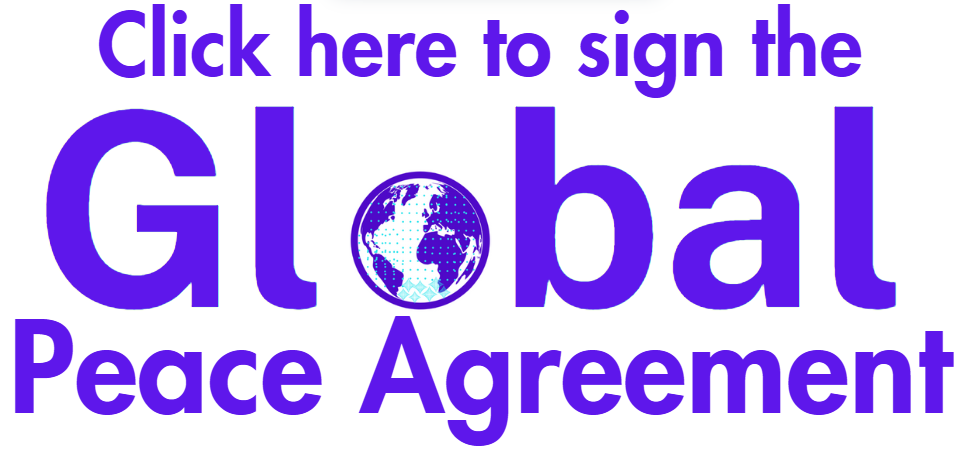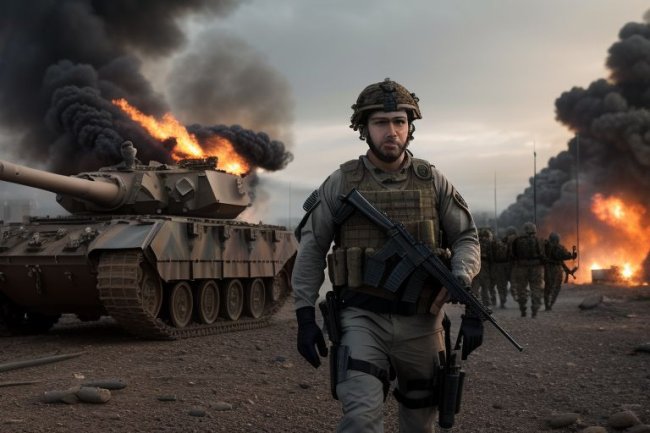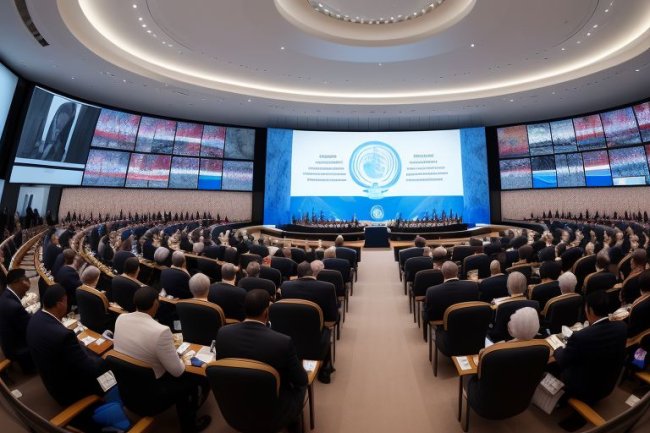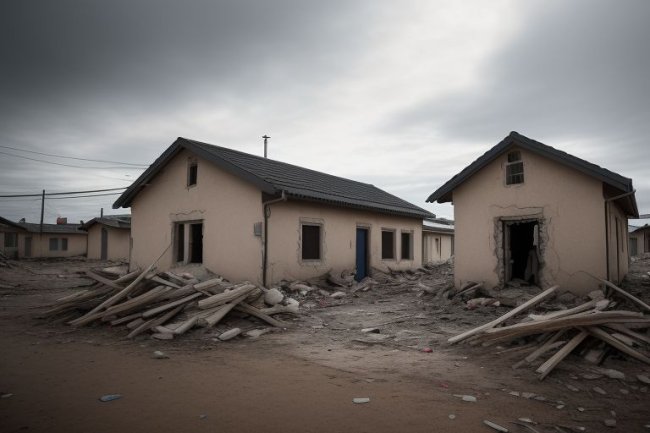Enhancing Peace
In the vast tapestry of human existence, the pursuit of peace has emerged as an ever-cherished ideal, a beacon of hope amidst the dark shadows of conflict. The age-old adage "peace, not war" resonates through the annals of time, urging nations and territories to transcend the destructive tendencies of armed confrontations. Instead, the clarion call for enhancing peace echoes, beckoning societies to embrace the transformative power of cooperation and diplomacy. In a world where the consequences of conflicts are measured not merely in terms of lives lost but also in shattered economies and ravaged landscapes, the imperative to seek bilateral and multilateral agreements for economic growth, peace, stability, and security takes center stage.
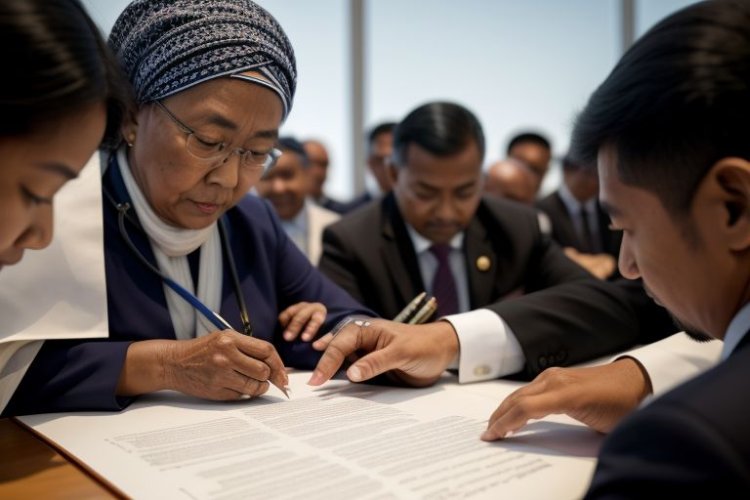
This chapter delves into the significance of fostering an environment of amicable collaboration and negotiation, where the pursuit of prosperity and harmony supersedes the futile pursuit of destruction. By exploring the manifold advantages of enhancing peace, we unveil the potential of nations uniting as partners in progress, laying the foundation for a brighter, more secure future for future generations.
Peace, an Alternative To War
As the world continues to navigate a complex global landscape, the significance of peace as a preferable alternative to war becomes increasingly evident. The devastating consequences of armed conflicts - loss of lives, destruction of economies, and societal fractures - are solemn reminders of the futility of violence in resolving disputes.
Amidst such dire consequences, the call for nations to embrace peace, cooperation, and diplomacy gains resonance. The path of peace offers a transformative approach where bilateral and multilateral agreements become the foundation for economic growth, stability, and security. This discussion explores the multifaceted significance of peace as a powerful and viable choice and delves into the manifold advantages of embracing diplomacy to create a world where prosperity, harmony, and progress flourish.
At the core of any conflict lies the immense human cost. Wars inflict immeasurable suffering, leaving behind a trail of shattered lives and broken families. The toll on soldiers and civilians alike is indescribable, as the scars of physical and emotional trauma linger for generations. The loss of loved ones, displacement, and the agony of witnessing violence take their toll on the human spirit, leaving lasting wounds that can be hard to heal.
Economically, armed conflicts bring profound disruptions. The destruction of critical infrastructure, disruption of trade, and diversion of resources toward war efforts have severe economic consequences. The toll on businesses, investment, and employment prospects undermines growth and prosperity. The economic aftermath of war is often felt for years, hindering development and diverting funds away from crucial social and developmental programs.
Socially, war fractures the fabric of societies. Deep-rooted animosities and ethnic tensions can be further exacerbated during conflicts, leading to long-lasting divisions and challenges in fostering reconciliation. The healing process and rebuilding trust within fractured communities can be a painstaking journey, further delaying the path to sustainable peace.
In addition to the human, economic, and social costs, wars have an unfortunate tendency to perpetuate themselves. The cycle of violence can become self-perpetuating as retaliatory actions breed further retaliation, creating an ever-escalating spiral of hostility. Breaking free from this vicious cycle demands immense courage, vision, and a willingness to embrace peace as the ultimate solution to the conflict.
In stark contrast to war, diplomacy, and peaceful negotiations offer a more hopeful path. Bilateral and multilateral agreements, forged through dialogue and compromise, have the potential to yield transformative outcomes. Nations may communicate their concerns through diplomacy, establish common ground, and work toward solutions that benefit both parties. It provides a platform for understanding, empathy, and cooperation, fostering a sense of shared responsibility for global challenges.
Embracing peaceful cooperation opens doors to economic growth and stability. Nations that invest in diplomacy can foster an environment conducive to trade, investment, and economic partnerships. They can address shared challenges such as poverty, climate change, and pandemics through collaboration. Such joint efforts not only benefit individual nations but also strengthen the global economy as a whole.
Moreover, diplomatic efforts can foster trust and strengthen regional cooperation. By addressing historical grievances and finding common ground, nations can build relationships based on mutual respect and understanding. Regional cooperation can create a web of interconnectedness, where nations collaborate on security, trade, and development, ultimately contributing to a more stable and prosperous region.
In the aftermath of conflicts, diplomatic efforts play a pivotal role in humanitarian assistance and peacebuilding. Through negotiated ceasefires and peace accords, space is created for humanitarian organizations to provide aid and support to affected communities. Diplomacy can facilitate the process of post-conflict reconstruction, helping societies transition from war to peace.
International organizations are essential for fostering peace and settling disputes. Organizations like the United Nations, regional associations, and NGOs act as unbiased mediators to unite the parties and find solutions.
They provide a platform for dialogue, peacekeeping efforts, and post-conflict reconstruction.
Yet, embracing peace is not the sole responsibility of governments and political leaders. It is a collective effort that requires the commitment of global citizens. Individuals, civil society, and grassroots movements play a vital role in advocating for peaceful resolutions, raising awareness about the devastating consequences of war, and urging governments to prioritize diplomacy over armed conflict.
The choice between peace and war is a defining moment in the grand narrative of human history. Conflicts' devastating human, economic, and social costs underscore the urgency of embracing diplomacy and cooperation. Bilateral and multilateral agreements offer transformative potential, empowering nations to work together for economic growth, peace, stability, and security. Through the power of diplomacy, humanity can pave a path toward a brighter future, one where the pursuit of peace supersedes the futile pursuit of destruction.
Embracing peace is not a sign of weakness; it is a testament to the strength of our collective humanity and our determination to build a better world for generations to come. By choosing peace over war, nations can forge a path toward prosperity, stability, and security, where the collective dreams of humanity can thrive and flourish.
Inclusivity And Representation In Peace Negotiations
In the complex arena of peace negotiations, the transformative power of inclusivity and representation stands as a guiding light, illuminating the path toward lasting and sustainable peace. Successful peace processes necessitate the engagement of all relevant stakeholders, providing them with a seat at the table to ensure their voices are heard and respected. Inclusive negotiations go beyond mere participation; they empower marginalized groups and address historical grievances, fostering an environment of trust and genuine compromise. Representation also plays a crucial role, acting as a catalyst for constructive dialogue and garnering support and trust from constituencies.
The Power of Inclusivity and Representation in Peace Negotiations and as Catalysts for Constructive Dialogue
One of the primary tenets of successful peace negotiations is inclusivity. Engaging all relevant parties - governments, armed groups, civil society organizations, and marginalized communities - brings depth and legitimacy to the negotiation process. The exclusion of key stakeholders risks perpetuating underlying grievances and inhibiting the exploration of comprehensive solutions. Inclusivity also involves empowering marginalized and vulnerable groups, ensuring their voices are amplified and their rights protected. By recognizing diverse communities' unique perspectives and needs, inclusivity addresses the root causes of conflicts, fostering an environment of understanding and empathy.
Representation complements inclusivity by ensuring that diverse perspectives are at the negotiation table. Meaningful representation fosters an environment of trust and respect, creating the foundation for constructive dialogue and genuine compromise. When all parties see themselves reflected in the negotiation process, they are more likely to invest in finding common ground and sustainable solutions. Representative negotiating teams become effective conduits for communicating progress and outcomes, solidifying the legitimacy and acceptance of the peace agreement.
However, embracing inclusivity and representation in peace negotiations is not without challenges. Protracted conflicts can give rise to deep-seated animosities and distrust, hindering efforts to bring all parties to the table. Armed groups may resist participating in negotiations or engage in fragmented representations, complicating the process. Additionally, the inclusion of marginalized communities, such as women, ethnic minorities, and indigenous groups, can face cultural and systemic barriers. Gender norms, discriminatory practices, and unequal power dynamics often marginalize these groups, depriving them of meaningful representation.
The international community's role in promoting and supporting inclusivity and representation in peace negotiations is pivotal. Entities such as the United Nations and regional organizations can serve as impartial mediators, urging all parties to embrace inclusivity in their negotiation processes. International stakeholders can provide technical assistance, capacity-building, and financial support to enhance the participation of marginalized groups. Moreover, they can apply diplomatic pressure to encourage the warring parties to prioritize inclusivity and representation to achieve peace.
While international support is vital, genuine and lasting inclusivity and representation must be grounded in local ownership and empowerment. Communities affected by conflict must be actively engaged in shaping the negotiation process, with their perspectives informing the agenda and outcomes. Empowering local actors, including civil society organizations and community leaders, enables them to be more active in peace negotiations. Local initiatives for dialogue and reconciliation can complement formal negotiation processes, fostering a bottom-up approach to peacebuilding.
The transformative impact of women's inclusion in peace negotiations has been well-documented. Women bring unique perspectives, priorities, and experiences to the table, enriching the dialogue and expanding the range of potential solutions. Moreover, research has shown that peace agreements are more likely to succeed and sustain when women participate in their design and implementation. Women's inclusion fosters a greater focus on social issues, such as education, healthcare, and community development, which are vital for post-conflict recovery.
One of the primary benefits of embracing inclusivity and representation in peace negotiations is building trust among conflicting parties. By providing a forum for open dialogue and acknowledging historical grievances, peace negotiations pave the way for reconciliation. When parties see themselves reflected in the negotiation process, they are more likely to perceive it as fair and just, increasing their willingness to compromise and find common ground. This can break down barriers of distrust and animosity, creating a foundation for sustained peace.
Inclusivity and representation are crucial in active conflict situations and can serve as a preventative measure against future conflicts. By engaging all stakeholders and addressing underlying grievances, nations can proactively address the root causes of potential conflicts. Engaging diverse perspectives and marginalized communities in decision-making can foster a more inclusive and equitable society, reducing the likelihood of social unrest and grievances that fuel violence.
Measuring the success of inclusivity and representation in peace negotiations is a complex endeavor. While the inclusion of diverse perspectives is a critical step, true success lies in the implementation of agreed-upon provisions and the sustainability of peace in the long term. The success of inclusivity can be measured through the meaningful participation of all stakeholders in the negotiation process and their engagement in post-conflict reconstruction efforts. The representation can be gauged by the extent to which the negotiated agreement reflects the interests and needs of diverse groups.
Inclusivity and representation in peace negotiations hold the promise of sustainable peace that transcends the immediate resolution of conflicts and seeks to address their root causes. When all parties have a stake in the outcome and feel ownership over the negotiated agreement, there is a greater commitment to its implementation and adherence. By embracing inclusivity and representation, nations and communities can overcome divisions and build bridges toward a shared future. This approach acknowledges the interconnectedness of societies, emphasizing the imperative for collaborative efforts in achieving peace.
Inclusivity and representation in peace negotiations are essential cornerstones in pursuing lasting peace. By embracing diverse perspectives, engaging all stakeholders, and empowering marginalized communities, nations can forge a path toward genuine reconciliation and sustainable solutions. The international and local communities must wholeheartedly embrace these factors, recognizing their transformative power in fostering a world where peace thrives, and conflicts find a resolution. Inclusivity and representation are not merely lofty ideals but practical imperatives guiding humanity toward a more inclusive, just, and peaceful future. By engaging all voices and respecting the rights and needs of diverse communities, humanity can pave the way for a more equitable and harmonious world.

